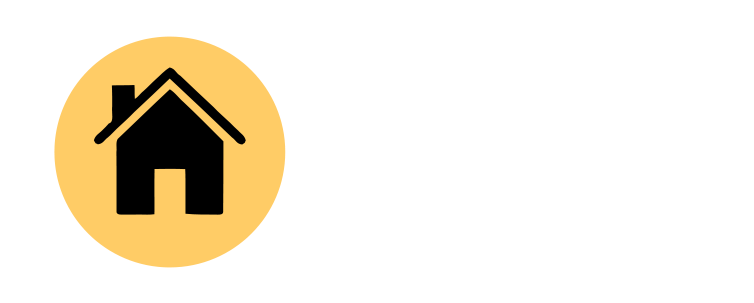Activities and Trends in the Nigerian Residential Market
The Real Estate Market Review H1 2023 byNorthcourt is a veritable trove of information on the real estate market.
Below are excerpts from the report with an emphasis on the residential sector of the market.
The performance of the real estate market in H1 2023 has been challenged in quite a number of ways. This has been met with a mix of sentiments from market players, primarily due to the economic effects of the National and Sub- national elections (and its outworking) among investors. Nevertheless, the Lagos real estate market exemplifies the
determination of the developer class, as they continue to secure fund-
ing from the capital market and regional institutional investors.
The demand for housing contin-
ues to surpass supply in various
areas of Lagos, Kano, Kaduna
and the FCT, particularly in the
low to mid- income market seg-
ments. This situation increases
the pressure on the residential
market. Developers and investors
are attempting to actively address
housing shortages by capitalising
on improved infrastructure quality
and transforming land positions
in both inner and outer city ar-
eas. The Lagos state government
completed the first phase of the
$1.2bn Lagos Blue Line project,
covering a 13km stretch from Mile
2 to Marina station. Although the
rail system is not yet fully opera-
tional for public use, we anticipate
its short-, mid-, and long-term im-
pacts on the residential market.

Lagos Land Prices
In Lagos, Old Ikoyi, known for its aspirational assets, witnessed price growth with average land prices in 2021 standing at N514,890psm.
By 2023, this had surged to N1.1m psm – a 113% rise. Victoria Island, a prime commercial and low density-residential area experienced moderate but steady growth. Land prices rose from N273,000psm in 2021 to N516,000psm
in 2023. This growth is partly due to exchange rate imbalances and sustained interest from corporate entities. Sangotedo, increasingly (and successfully) punching above its weight
continued to enjoy attention from the Lagos state government, by way of infrastructure and developers, the latter keener than the former. In 2021, land here was priced at N22,964psm. By 2023, this had surged to N48,000.

Veritasi Homes and Properties Limited, a Lagos- based development company,
redeemed N5.53Bn in series 1 & 2 bonds
under its N10 billion issuance program.
Landwey Investment Limited issued a
N20Bn commercial paper on the FMDQ
Securities Exchange to expedite the
development of ongoing projects and its
wellness city in Epe, Lagos.
Property Finance
Lekki Gardens Estates Limited also
announced the redemption of N3.48Bn
series 1 (Tranche A) Commercial issuance
from its N25Bn commercial paper program
listed on the FMDQ Securities Homes
Fund Limited listed a N20Bn Sukuk bond
on the NGX under its N30Bn issuance
program. Landmark Africa secured a $24m
commercial loan from Shelter Afrique to
partly finance the construction of a mixed-use housing project – Landmark Waterview Apartments, and refinance existing debt.
Family Homes Funds Limited (FHF)
issued a N10bn Sukuk bond to finance
housing initiatives for low-income earners.
The seven-year bond is a 13% Series 1
Ijara lease Sukuk issued under the N30bn
Sukuk issuance programme – 64% of
subscriptions originated from Pension
Funds.
Resilient developers in face of rising costs
The persistently high inflation, escalating energy prices, and devaluation of the naira have put pressure the prices of construction materials. Still, some projects have ambled towards completion. Eximia Realty
completed a 48-unit housing project named – Fiona Lawton Apartments in Lekki, offering 1 and 2-bedroom
apartments. In partnership with Cocoon Atlantic estate, the FMBN also completed 28 apartments in Sangotedo. Mixta Africa initiated the construction of Marula Park, a residential community in Lagos New Town, while simultaneously introducing a home financing product that allows renters to lease a 2- bedroom apartment in Marula Park for a maximum of 3 years, with an option to purchase at the end of the rental
period. Furthermore, UPDC Plc announced its new development, The Hampshire, situated in Sangotedo, Lekki, Lagos.
Ikeja’s position as the industrial hub
and commercial nerve centre of Lagos
state has encouraged an unprecedent-
ed population influx, resulting in an ever-increasing demand for housing and
sustained competition among other
land uses. Comparing the rental performance of tenement buildings in Ikeja to other property uses reveals rental fluctuations. Many have been converted into informal office spaces. The rental trend for after-use conversions is generally increasing, which encourages additional conversions. An estimated 55% of use conversion activities in Ikeja may be explained by the fusions of conversion elements, which have an estimated 89% impact on residential property rental values. Conversion operations and negotiations for property uses, especially for buildings with locational advantages, have contributed to an increase in occurrences of rent default.
The larger players in Nigeria’s hos-
pitality industry are having to fend
off incessant challenges from smaller short-stay enterprises. Not many
operators anticipated the sub-market’s growth. Drivers for the expan-
sion of short-stay flats include competitive pricing, the dread of hotel
crowds, and the flexibility to choose
the apartment of one’s taste. Shortlet apartments are considered the
preferred alternative for stays of
one month. While hotels continue
to dominate the Nigerian hospitality
industry, short-let apartments are
posing something of a threat. While
Short-let or Hotel?some landlords earn directly from the short-let rental mar-
ket, others profit through early
rent payments from tenants who
rent out spare rooms from their
homes, à-la-Airbnb.
Living, work, and travel patterns
have continued to alter across
the globe, resulting in further
modifications to real estate busi-
ness models. Traditional land-
lord-tenant models have been
replaced by investor-subscrib-
er-based frameworks. The hous-
ing market in the Lagos Island
area continues to have healthy
demand because of relatively
high-quality infrastructure, excellent security, new buildings,
and competitive asset pricing.
Property developers contribute
to the development business
on the strength of solid housing
demand and stable pricing levels. Small- room residential units
make up a growing component
of the current inventory of new
developments to meet the needs
of young professionals and families with young children.

